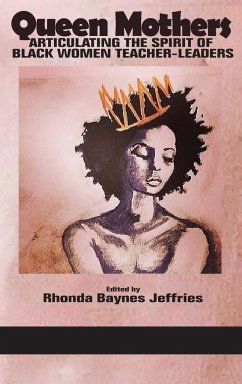Black women's experiences functioning as mothers, teachers and leaders are confounding and complex. Queen Mothers from Ghanaian tradition are revered as the leaders of their matrilineal families and the teachers of the high chiefs (Müller, 2013; Stoeltje, 1997). Conversely, the influence of the British Queen Mother on Black women in the Americas translates as a powerless title of (dis)courtesy. Characterized as a deviant figure by colonialists, the Black Queen Mother's role as disruptive agent was created by White domination of Black life (Masenya, 2014) and this branding persists among contemporary perceptions of Black women who function as the mother, teacher, or leader figure in various spaces. Nevertheless, Black women as cultural anomalies were suitable to mother others for centuries in their roles as chattel and domestic servants in the United States. Dill (2014), Lawson (2000), Lewis (1977) and Rodriguez (2016) provide explorations of the devaluation of Black women in roles of power with these effects wide-ranging from economic and family security, professional and business development, healthcare maintenance, political representation, spiritual enlightenment and educational achievement. This text interrogates contexts where Black women function as Queen Mothers and contests the trivialization of their manifold contributions. The contributed chapters explore: The myriad experiences of Black women mothering, teaching and leading their children, families and communities; how spirituality has influenced the leadership styles of Black women as mothers and teachers; and how Black women are uniquely positioned to mother, teach, and lead in personal and professional spaces.
Hinweis: Dieser Artikel kann nur an eine deutsche Lieferadresse ausgeliefert werden.
Hinweis: Dieser Artikel kann nur an eine deutsche Lieferadresse ausgeliefert werden.


